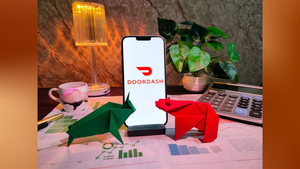Cambridge, MA, June 23, 2025 (GLOBE NEWSWIRE) -- Businesses and organizations worldwide are increasingly integrating generative AI tools like ChatGPT into their workflows, hoping that these tools will fuel innovation and boost creativity. But results have been mixed thus far. For example, a large-scale, nationally representative survey conducted by Gallup found that only 26% of employees using generative AI reported improved creativity.
This raised a crucial question: Does generative AI actually enhance creativity in the workplace? The answer is yes — but only for employees who have strong metacognitive strategies, according to new research from MIT Sloan School of Management associate professor Jackson G. Lu, Tulane University associate professor Shuhua Sun, Renmin University lecturer Angelina Zhuyi Li, Nanyang Technological University professor Maw Der Foo, and Rice University professor Jing Zhou.
“Generative AI isn’t a plug-and-play solution for creativity,” said Lu. “To fully unlock their creative potential, employees must know how to engage with AI — to drive the tool, rather than letting the tool drive them.”
The study, titled “How and For Whom Using Generative AI Affects Creativity: A Field Experiment,” published in the Journal of Applied Psychology, tested how AI affected creativity in real-world organizational settings through a field experiment at a technology consulting firm in China.
The researchers randomly assigned 250 employees to either use ChatGPT to assist with their work or not. Employees with access to ChatGPT were rated as more creative by both their supervisors and external evaluators — but only if they had high levels of metacognitive strategies, which involved analyzing tasks and their own thought processes, planning, self-monitoring, and revising strategies. For example, employees with strong metacognitive skills could reflect on what information they lacked, keep track of how effective their approach is and reassess their approach when noticing a lack of progress, and refine their AI prompts accordingly — behaviors that could help them use AI more effectively to enhance creativity.
“Metacognition — thinking about your thinking — is the missing link between simply using AI and using it well,” said Lu. “It allows people to ask better questions, recognize knowledge gaps, and extract real value from AI tools instead of relying on them passively.”
The researchers also found that ChatGPT helped employees gain cognitive job resources — including access to information and knowledge, and the opportunity to switch between tasks and take mental breaks — which can foster creativity . However, only employees with strong metacognitive strategies could fully take advantage of these benefits.
Importantly, the researchers emphasized that metacognitive strategies are not fixed traits — they can be taught. Cost-effective interventions like brief training modules, social-psychological exercises, or even multi-day workshops can help employees enhance their metacognitive capabilities — and, in turn, their creativity.
“Even the most powerful AI won’t boost creativity if employees don’t know how to use it effectively,” said Lu. “Organizations should pair AI deployment with metacognition training to maximize the creative benefits.”
Attachment

Matthew Aliberti MIT Sloan School of Management 7815583436 malib@mit.edu






